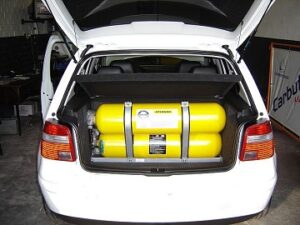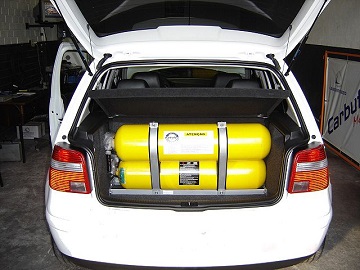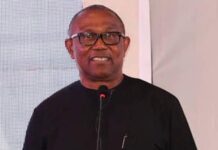The Federal Government has announced a new initiative to convert fuel-powered vehicles to gas, aiming to reduce transportation costs and, consequently, the cost of living for Nigerians.
At the initiative’s launch and the signing of agreements with partners in Benin, Edo State, on Saturday, Tosin Coke, Head of Commercial for the Presidential CNG Initiative, explained that the program is part of President Bola Tinubu’s strategy to address the rising cost of petrol.
Coke highlighted that the initiative aims to convert one million vehicles nationwide at no expense to vehicle owners. He stated, “This initiative will alleviate the pressure on petrol, eventually lower its price, and reduce transportation costs, leading to a more affordable cost of living for the masses.”

The initiative, which has also been rolled out in five other states, is designed to provide free conversions for commercial vehicles in collaboration with transport associations. Vehicle owners can have their vehicles converted at Pi-CNG partners’ centers without incurring any costs.
Coke emphasized, “This is a commendable policy driven by President Tinubu. By making CNG available, the government intends to lower petrol prices and transportation costs, allowing these savings to benefit the general public.”
About a year ago, President Tinubu established a steering committee with three key objectives: incentivizing the project, facilitating financing infrastructure, and regulating the new scheme. Coke noted that partners have secured financing to support corporate entities, civil servants, and individuals investing in this initiative.
To ensure proper regulation, the Nigerian Gas Vehicle Monitoring System has been developed through collaboration between Pi-CNG and various bodies, including the Nigerian Automobile Development and Design Council, the Standard Organisation of Nigeria, the Federal Roads Safety Commission, and the National Midstream and Downstream Petroleum Regulatory Authority.
Coke also pointed out that Nigeria, being a major gas producer, has extensive gas reserves that have been underutilized. He criticized the longstanding practice of gas flaring, which has made Nigeria the second-largest waster of this resource, following Russia.
Coke called for support from state governments and stakeholders, including the Edo State government. Edo’s Commissioner for Mining and Energy, Enaholo Ojiefoh, mentioned that the state has been pursuing alternative fuel initiatives for over three years.




